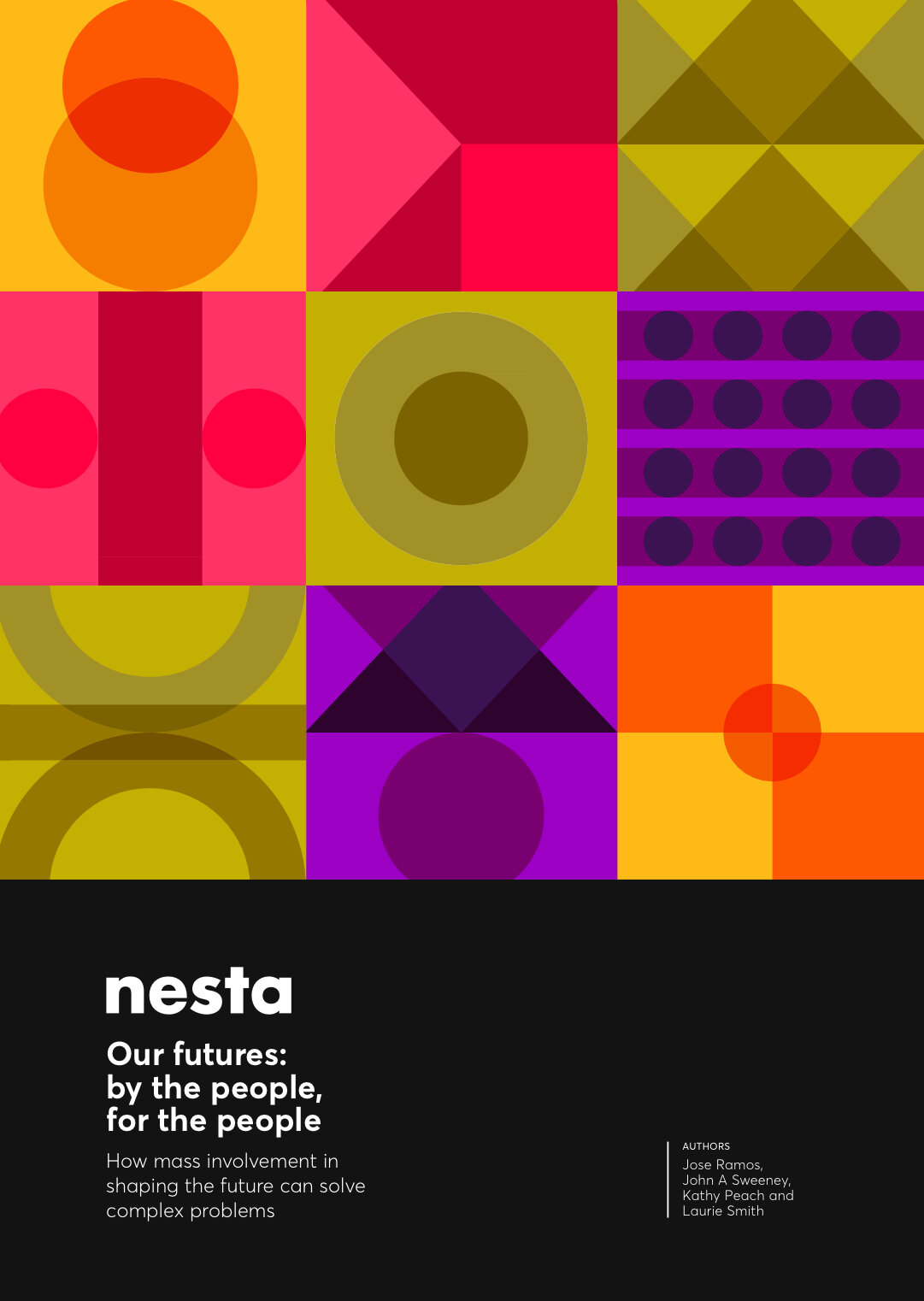How we can create better futures, by the people, for the people
Posted on 29 Nov 2019 Categories: News, Reports
Nesta have released a new report, Our Futures: By the people, for the people, which describes itself as ‘a guide to how mass involvement with shaping the future can solve complex problems’.
‘All over the world democracies are struggling to cope,’ the report begins. Citizens ‘see the future as something to be afraid of’ while governments, lacking in strong electoral support, ‘are tending to avoid the hard choices’. This has left us stuck on issues such as the climate crisis, a prevailing problem being that
‘the benefits of actions taken today may only be felt by future generations who we may never meet, while simultaneously imposing costs on us here in the present’.

The report proposes breaking with this ‘epidemic of short-termism’ by ‘engaging more citizens in shaping the future’. It argues this will lead to ‘better policy-making, more effective socialisation of emerging technologies, and greater legitimacy for hard decisions’. It advocates moving beyond citizens’ assemblies and traditional public engagement, towards participatory future techniques which ‘help people to develop a collective image of the future they want, so that we can make better, more informed decisions’. It aims not only to ‘democratise and encourage long-term thinking’ but to ‘inform collective actions in the present’. It could improve ‘decision-making … for future generations’, and help rebuild people’s trust in institutions.
The report outlines some examples of participatory future techniques, grouping them into five categories: play, immerse, sense, create, deliberate. Play allows people to engage in different futures through games, like ‘World Without Oil’, an alternative reality game which invited players to engage with the idea of an imminent oil shortage. ‘Carnival 2020’ allowed participants to experience the Chinese social credit system through immersive experiences, showing how these systems ‘eliminate our humanity and reconstruct lives’. Sensing initiatives seek to ‘engage people through digital technologies at scale to scan, sense, explore and forecast the future’, drawing upon a ‘wider range of skills, knowledge and experience’. ‘Create’ involves people ‘making and engaging with physical objects that represent the future’, such as Time Portals, a 2019 interactive art exhibition in Finsbury Park, London. Methods such as ‘workshops, interviews and in-person discussion’ have long been used to deliberate futures, but digital technologies are now ‘offering new ways of enabling diverse citizens to interact and share ideas at scale, across large distances’.
The report calls for ‘governments, city leaders, public institutions, funders, and civil society’ to be at the forefront of this approach, ‘supporting it through funding, strategy and practice’, giving examples of how this could be done. These include ‘carrying out publicly funded mission-oriented research to be informed by participatory futures exercises’, ‘creating new legislation that requires UK Government departments to use these approaches to inform decision-making and strategies’, and ‘embedding these approaches in the Civil Service Competency Framework and equivalent frameworks for local government and charities’.
Read the full report here.
